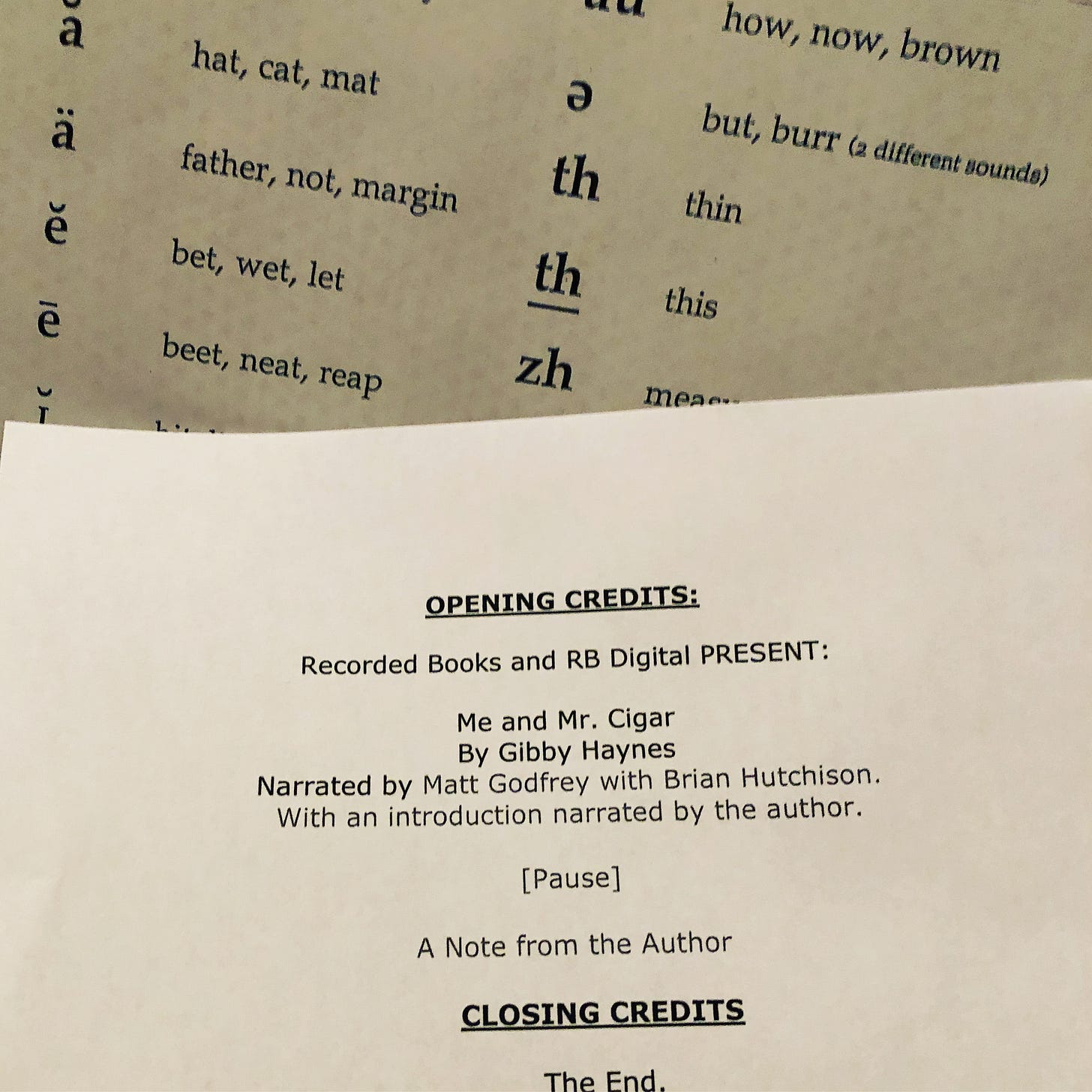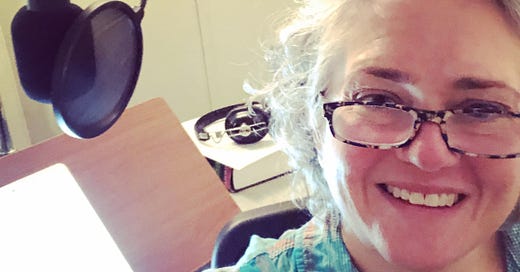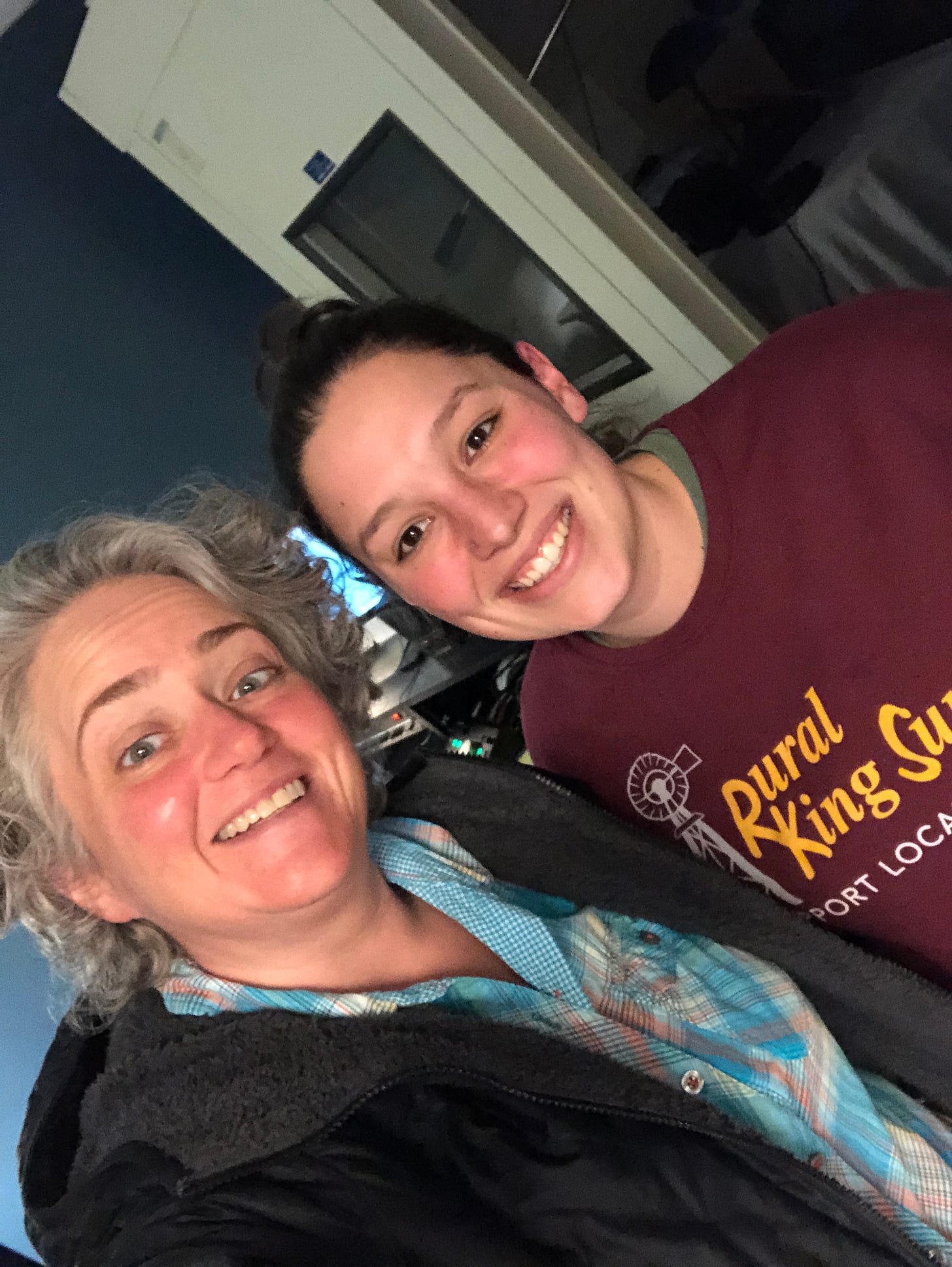Mouth Noises
Back in March 2020 when Somebody’s Gotta Do It1 had just hit the shelves, I wrote a couple of pieces that the publicity folks were going to try to place in popular publications in order to drum up more sales. Because the entire world upended itself overnight, none of these pieces have seen anything other than my draft folder. It dawned on me that they might still be interesting.2 So … here’s a brief piece about what it’s like to record an audiobook.
Most readers would assume a book’s writer has a pretty good sense of how many words are in said book. And we do, mostly, on an intellectual level. On an emotional level, that number is hard to grasp until you’ve had to read every single word you’ve written into a microphone.
Or, at least, I didn’t understand how long a book is until I spent the better part of three days sitting in an stuffy studio in January 2020 providing the voice for my memoir Somebody’s Gotta Do It: Why Cursing at the News Won’t Save the Nation, But Your Name on a Local Ballot Can. I got a much better sense of how 65,0003 words feel when I had to say each and every one.
I had to audition for the narrator gig, even though I know the text better than anyone else. I get it — not every writer should have their voice as *the voice* for their work. Fortunately, I didn’t even need to leave my desk to try-out. Thanks to the marvel of modern technology, I simply read a couple of minutes from the first chapter into my iPhone, then sent the file off to the powers-that-be. Eventually, they said yes.

A couple of weeks after that, I made the trek from Upstate New York into Lower Manhattan, where I met Brooke, a relatively recent college grad, who would be the first to hear my book from start to finish. Our studio was about the size of generous walk-in closet. It was bisected by a wall with a big glass window. She sat on one side; I sat on the other. Before each recording session, I would be hermetically sealed in my half behind a soundproofed door. The airflow on my side was non-existent because even a whisper of AC is too loud.
We spent hours and hours like that, together but apart. Brooke listened to me breathe. She heard my stomach gurgle and pop. She also heard the many, many times I would start a sentence, fumble a word, then go back to the end of the previous sentence, say the words again, and hopefully, move past the point where I made the mistake so that it could be smoothed out in the edit.
This happened a lot, so much so that I started doing it in everyday conversation, where I’d start to explain something as simple, say, as the weather, stumble over the word snow, then have to go back to the last coherent words I’d said and start again.
My friends and family, it should be noted, are very patient.
During my three days, I decided that, despite having a degree in theater, I shouldn’t pull a Ronan Farrow4 and attempt to recreate accents. I also learned I can never again use the word “succinctly,” because it proves to be impossible for me to say, well, succinctly. I will never use the phrase “bona fides” because all of the ways I’ve heard it said — from Coen Brothers’ movies to erudite college professors — turn out to be wrong.
Also during my three days, I had ample time to overthink everything I’d written. When you have to say all5 of the words, you started to question if you really know how to put them in any kind of order that makes sense. Spending hours and hours with all of your writerly ticks — for me, it’s all of the adverbs and extraordinarily long sentences — can be demoralizing.
But, by the end of day three, I could see the entire story forest rather than each individual tree. I loved the funny, flawed book I’d written. This also could have been Stockholm Syndrome, which is a phrase I use more than a writer should.
The easiest way to find every typo is to read the piece out loud. I found three and am tempted to offer a prize to any reader who can also spot them. Brooke assured me that every single book that she’s recorded has at least a couple of mistakes that no one caught before the first printing.
My biggest fear failed to materialize: my body did not fail me. My tummy grumbling only interrupted a couple of sentences. My sinuses neither stuffed up nor flowed like a mountain stream. Thanks to my steady intake of water, coffee, and more water, my voice didn’t start sounding froggy at the end of the last day.
That last self-care habit did mean that I had to take a break every 90 minutes to hit the restroom. Those pit stops became the only way I knew time had passed. Otherwise, in my little soundproofed booth, time was measured by each individual word. I could only focus on the next one, then the next, rather than on niceties like minutes or hours. Whenever I left the booth, I could see that the sun glinting off of the East River or the lights coming on in Brooklyn. All reminders that the world still spun.

One of my few tethers to this outside world was another writer friend, Clara,6 who also records her own audiobooks. I’d texted her for tips once I knew I had the gig and a fair amount of my success at the process is due to her shared wisdom. On the second day of recording, I texted to her that she was right about time stopping while you’re reading. She responded that I’d missed the birth of my grandchildren. Not shocked, I replied, I’m sure they’re cute. Until they became teenagers, she said. You should see them now.
Tell me, I said, do glaciers still exist.
Oh sweet child, she said.
After my work on the audiobook was done and I returned to my life as a county legislator, writer, mother, and wife, I missed that challenging-but-beautiful bubble where my only goal was to spend the day reading out loud to an unseen audience. Everything else fell away, just for a few moments, and I learned what my voice could do.
Did I mention you should buy my book? Let me mention it now.
(and I’m still trying to finish reading a book I want to write about here)
and one map
So this was a bigger deal last year. When Farrow recorded Catch and Kill (which you should read), he did voices and accents for all of the real people in the book. It was polarizing, at best.
and I do mean all. You are not allowed to edit on the fly. A bumpy sentence that’s hard to say will remain as is.
You should know Clara. The Wool Channel is her most recent undertaking but, really, all of her undertaking are worth your time.






